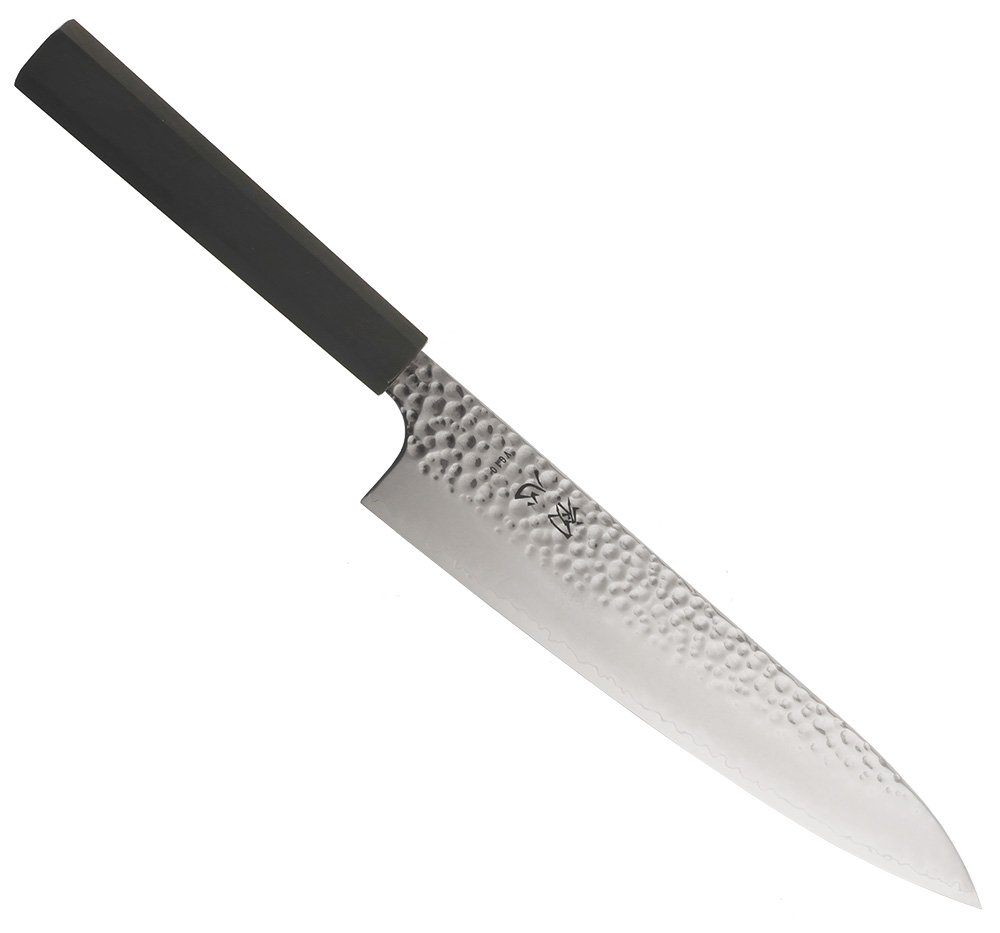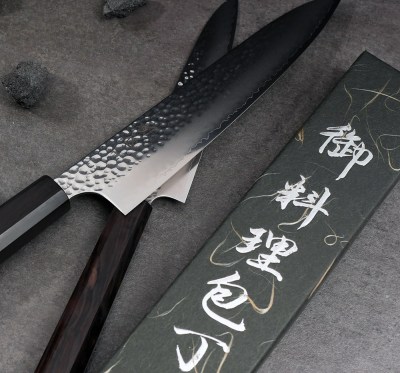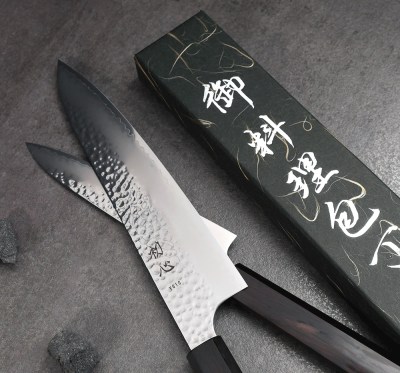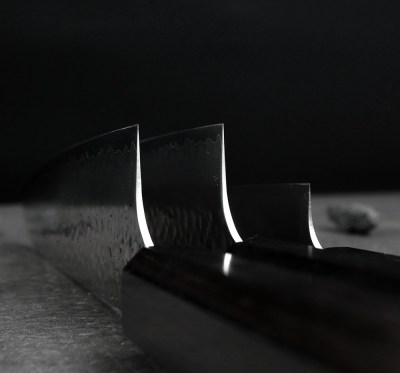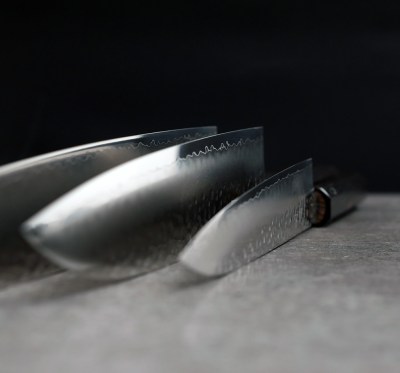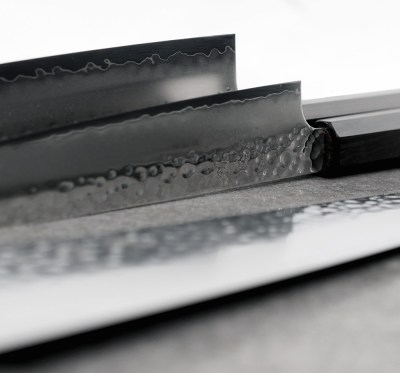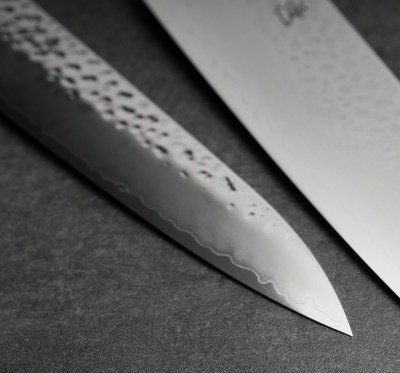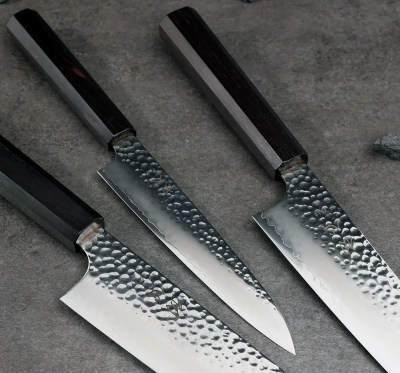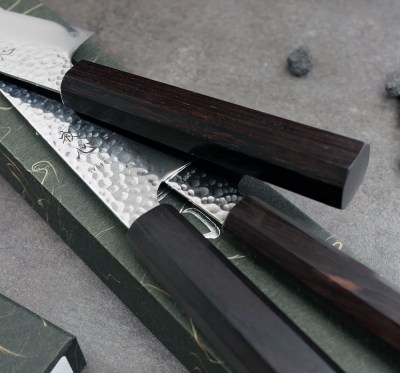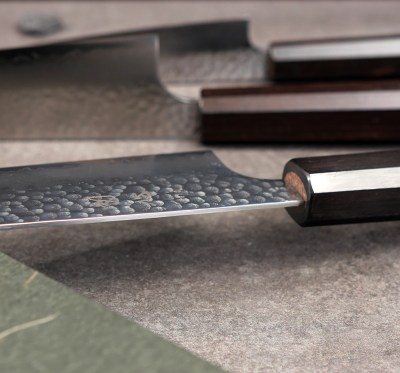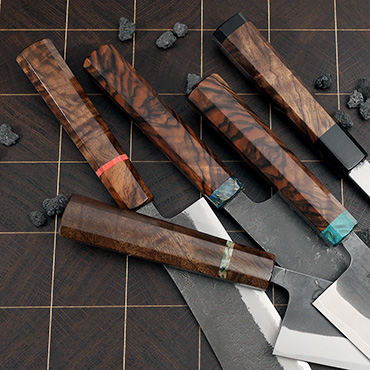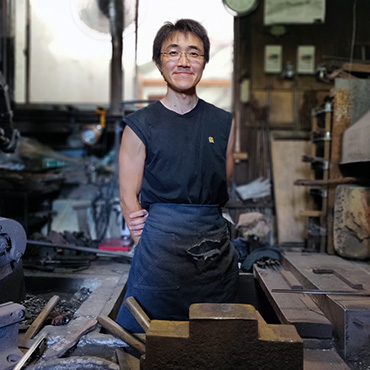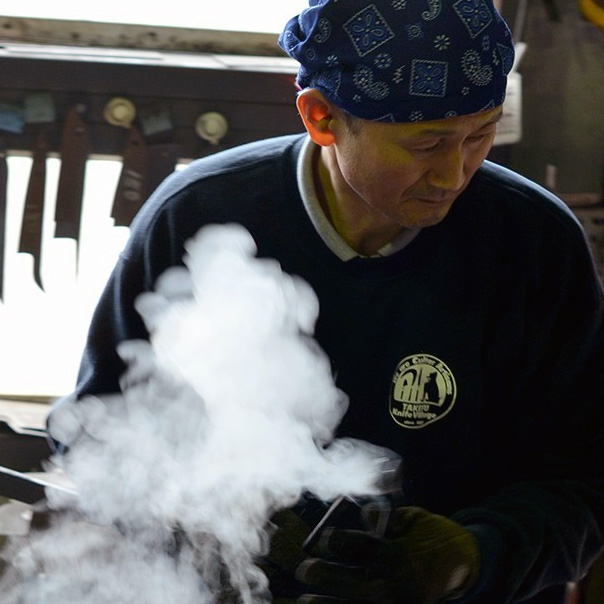Gyuto


Gyuto, chefs knife, with a blade that measures 204 mm from tip to heel.
Steel: Stainless VG-10 with a two-layer stainless cladding (HRC: 60-62)
Edge length: 204 mm
Blade height: 44 mm
Spine thickness: 2 mm
Weight: 153 grams
Blade finish: Mirror-polished "tsuchime" with a hazy transition to the polished core steel
Handle: Mono ebony, octagonal
This knife series is the result of a close collaboration between Hatsukokoro and one of the most renowned knife manufacturers in Seki City, Japan. We are immensely impressed by this knife series, which delivers not only a beautiful finish but also consistently thin and refined edges of outstanding quality. We highly recommend this knife!
The blade is crafted from high-performance VG-10 stainless steel, encased by two layers of softer steel that have been hammer-finished and mirror-polished. The mirror finish fades into a hazy "kireha" that contrasts nicely with the polished core steel. The octagonal handle is made of ebony, adding to the knife's luxurious aesthetic.
Important:
The edge of this knife is very hard and extremely thin. Therefore, it is crucial to avoid putting lateral stress on the edge. When using a Japanese knife with a thin blade, the edge should always be moving as you cut. Never force the blade through the material by pushing straight down without movement, nor should you twist or wiggle the blade to pry apart food.
If you press, twist, or force the blade, it can easily create lateral stress on the thin edge. A knife's edge can typically withstand considerable pressure when cutting straight down while moving forward or backward, as the blade above the edge absorbs and distributes the force. However, under lateral stress, the edge is thin and unsupported, making it vulnerable. The hard edge can flex only so much before a chip occurs, or a part of the tip may break. This type of damage is common when cutting hard foods like cheese, avocado pits, frozen fillets, bones, butternut squash, etc.


